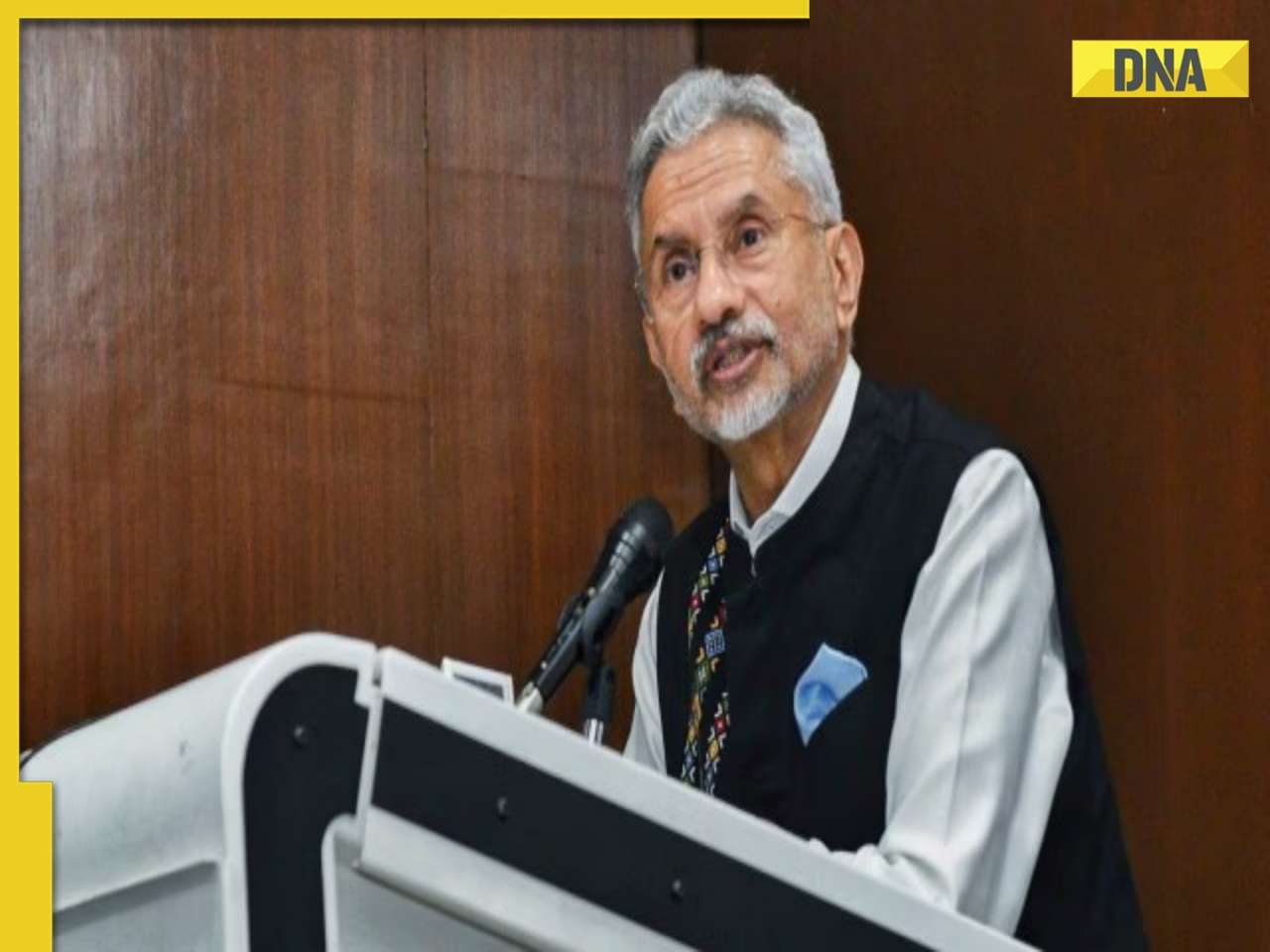Flood-stricken Pakistan urgently needs more international aid to combat potential instability and extremism, influential US senator John Kerry said, as hunger and disease threaten millions of victims.
Flood-stricken Pakistan urgently needs more international aid to combat potential instability and extremism, influential US senator John Kerry said, as hunger and disease threaten millions of victims.
In a commentary in the International Herald Tribune, Kerry, who heads the Senate Foreign Relations Committee, said that the international community was not meeting its responsibilities towards Pakistan, where floods have killed more than 1,600 people and left at least 6 million homeless.
"The danger of the floods extends beyond a very real humanitarian crisis," Kerry wrote in Monday's edition.
"A stable and secure Pakistan, based on democracy and the rule of law, is in all of our interests. Pakistan has made enormous strides in combating extremism and terrorism -- at great sacrifice. But its ability to keep up the fight requires an effective response to this crisis."
Pakistan has struggled with its response to the massive flooding, which has left one-fifth of the country under water, an area the size of Italy. Pakistanis have grown increasingly angry with the sluggish government response, and are turning to Islamist charities, some of them tied to militant groups.
"We don't want politicians. We want the Islamic groups in power. The government just steals," said Haidar Ali, a college student in the devastated Swat Valley, whose life has been reduced to laying bricks all day in stifling heat.
The United States worries that the battle against Islamist militants may have got harder in Pakistan, with a weakened administration battling economic meltdown and public anger.
Kerry is a co-sponsor of the Kerry-Lugar-Berman aid package, which would funnel $7.5 billion over five years in civilian development money to Pakistan. Last week, the head of the United States Agency for International Development said $50 million from the package would be diverted to immediate flood relief.
The floods began in late July after torrential monsoon downpours over the upper Indus basin in the northwest.
In Jampur, in southern Punjab, about 500 km (310 miles) southwest of Islamabad, waters have begun to recede but thousands of people still live in relief camps.
"In about two weeks'' time, when the river returns to normal, that's when we expect movement in the population (to go home)," Brigadier Zahid Usman told Reuters.
The village of Kot Bodla, outside Jampur, has been cut off for a month, and is still accessible only by boat.
"The cotton crop was almost ready," said Abdul Ghafar, a farmer. "It just needed another three weeks, but the water destroyed it."
He added that he did not believe they would be able to sow their winter wheat crop now, which both supplies the village's food needs and gives them something to sell.
Further south in Thatta, in Sindh, the flooding that threatened the city of 300,000 has been largely stanched, said Saleh Farooqi, director general in Sindh for National Disaster Management Authority, but Sajwal to the east is under water.
"There has not been a substantial relief but things have improved," he said. "Water is still flowing but the speed and levels are reducing. It will take another four to five days for things to improve further."
The death toll from the flooding was expected to rise significantly as the bodies of the many missing people are found. There is no official estimate of the number of missing because mass displacements have made accounting for them almost impossible.
The United Nations said aid workers were increasingly worried about disease and hunger, especially among children, in areas where even before the disaster acute malnutrition was high.
The receding floods have left behind huge pools of stagnant water, which in turn are breeding disease. UN officials say an estimated 72,000 children, affected by severe malnutrition, were at high risk of dying.
![submenu-img]() 'They unilaterally took some measures': EAM Jaishankar on new Nepal 100 rupee currency
'They unilaterally took some measures': EAM Jaishankar on new Nepal 100 rupee currency![submenu-img]() Meet Ice Cream Lady of India, who built Rs 6000 crore company, started with small investment of Rs…
Meet Ice Cream Lady of India, who built Rs 6000 crore company, started with small investment of Rs…![submenu-img]() ‘Canada a rule-of-law country’: PM Trudeau after 3 Indian arrested over Hardeep Nijjar's murder
‘Canada a rule-of-law country’: PM Trudeau after 3 Indian arrested over Hardeep Nijjar's murder![submenu-img]() Viral video: Specially-abled girl’s energetic dance to Bollywood song wows internet, watch
Viral video: Specially-abled girl’s energetic dance to Bollywood song wows internet, watch![submenu-img]() 'Baap re baap': Imtiaz Ali reveals Diljit Dosanjh was scandalised by old women's 'vulgar' improvisation on Chamkila set
'Baap re baap': Imtiaz Ali reveals Diljit Dosanjh was scandalised by old women's 'vulgar' improvisation on Chamkila set![submenu-img]() DNA Verified: Is CAA an anti-Muslim law? Centre terms news report as 'misleading'
DNA Verified: Is CAA an anti-Muslim law? Centre terms news report as 'misleading'![submenu-img]() DNA Verified: Lok Sabha Elections 2024 to be held on April 19? Know truth behind viral message
DNA Verified: Lok Sabha Elections 2024 to be held on April 19? Know truth behind viral message![submenu-img]() DNA Verified: Modi govt giving students free laptops under 'One Student One Laptop' scheme? Know truth here
DNA Verified: Modi govt giving students free laptops under 'One Student One Laptop' scheme? Know truth here![submenu-img]() DNA Verified: Shah Rukh Khan denies reports of his role in release of India's naval officers from Qatar
DNA Verified: Shah Rukh Khan denies reports of his role in release of India's naval officers from Qatar![submenu-img]() DNA Verified: Is govt providing Rs 1.6 lakh benefit to girls under PM Ladli Laxmi Yojana? Know truth
DNA Verified: Is govt providing Rs 1.6 lakh benefit to girls under PM Ladli Laxmi Yojana? Know truth![submenu-img]() Streaming This Week: Heeramandi, Shaitaan, Manjummel Boys, latest OTT releases to binge-watch
Streaming This Week: Heeramandi, Shaitaan, Manjummel Boys, latest OTT releases to binge-watch![submenu-img]() Remember Ayesha Kapur? Michelle from Black, here's how actress, nutrition coach, entrepreneur looks after 19 years
Remember Ayesha Kapur? Michelle from Black, here's how actress, nutrition coach, entrepreneur looks after 19 years![submenu-img]() Remember Heyy Babyy's cute 'Angel' Juanna Sanghvi? 20 year-old looks unrecognisable now, fans say 'her comeback will...'
Remember Heyy Babyy's cute 'Angel' Juanna Sanghvi? 20 year-old looks unrecognisable now, fans say 'her comeback will...'![submenu-img]() In pics: Arti Singh stuns in red lehenga as she ties the knot with beau Dipak Chauhan in dreamy wedding
In pics: Arti Singh stuns in red lehenga as she ties the knot with beau Dipak Chauhan in dreamy wedding![submenu-img]() Actors who died due to cosmetic surgeries
Actors who died due to cosmetic surgeries![submenu-img]() DNA Explainer: Why Harvey Weinstein's rape conviction was overturned, will beleaguered Hollywood mogul get out of jail?
DNA Explainer: Why Harvey Weinstein's rape conviction was overturned, will beleaguered Hollywood mogul get out of jail?![submenu-img]() What is inheritance tax?
What is inheritance tax?![submenu-img]() DNA Explainer: What is cloud seeding which is blamed for wreaking havoc in Dubai?
DNA Explainer: What is cloud seeding which is blamed for wreaking havoc in Dubai?![submenu-img]() DNA Explainer: What is Israel's Arrow-3 defence system used to intercept Iran's missile attack?
DNA Explainer: What is Israel's Arrow-3 defence system used to intercept Iran's missile attack?![submenu-img]() DNA Explainer: How Iranian projectiles failed to breach iron-clad Israeli air defence
DNA Explainer: How Iranian projectiles failed to breach iron-clad Israeli air defence![submenu-img]() 'Baap re baap': Imtiaz Ali reveals Diljit Dosanjh was scandalised by old women's 'vulgar' improvisation on Chamkila set
'Baap re baap': Imtiaz Ali reveals Diljit Dosanjh was scandalised by old women's 'vulgar' improvisation on Chamkila set![submenu-img]() This actor, who worked with Karan Johar and Farhan Akhtar, gave superhit shows, saw failed marriage, killed himself at..
This actor, who worked with Karan Johar and Farhan Akhtar, gave superhit shows, saw failed marriage, killed himself at..![submenu-img]() Did you know Ranveer Singh's grandmother was popular actress? Worked with Raj Kapoor; her career affected due to...
Did you know Ranveer Singh's grandmother was popular actress? Worked with Raj Kapoor; her career affected due to...![submenu-img]() India's highest-paid TV actress began working at 8, her Bollywood films flopped, was seen in Bigg Boss 1, now charges...
India's highest-paid TV actress began working at 8, her Bollywood films flopped, was seen in Bigg Boss 1, now charges...![submenu-img]() Shreyas Talpade wonders if his heart attack was due to Covid vaccine: 'We don’t know what we have taken inside...'
Shreyas Talpade wonders if his heart attack was due to Covid vaccine: 'We don’t know what we have taken inside...'![submenu-img]() IPL 2024: Faf du Plessis, Virat Kohli help Royal Challengers Bengaluru defeat Gujarat Titans by 4 wickets
IPL 2024: Faf du Plessis, Virat Kohli help Royal Challengers Bengaluru defeat Gujarat Titans by 4 wickets![submenu-img]() IPL 2024: Why is Sai Kishore not playing today's RCB vs GT match?
IPL 2024: Why is Sai Kishore not playing today's RCB vs GT match?![submenu-img]() 'Mumbai Indians ki kahani khatam': Ex-India star slams Hardik Pandya after MI's loss to KKR at Wankhede
'Mumbai Indians ki kahani khatam': Ex-India star slams Hardik Pandya after MI's loss to KKR at Wankhede![submenu-img]() LSG vs KKR, IPL 2024: Predicted playing XI, live streaming details, weather and pitch report
LSG vs KKR, IPL 2024: Predicted playing XI, live streaming details, weather and pitch report![submenu-img]() LSG vs KKR IPL 2024 Dream11 prediction: Fantasy cricket tips for Lucknow Super Giants vs Kolkata Knight Riders
LSG vs KKR IPL 2024 Dream11 prediction: Fantasy cricket tips for Lucknow Super Giants vs Kolkata Knight Riders![submenu-img]() Viral video: Specially-abled girl’s energetic dance to Bollywood song wows internet, watch
Viral video: Specially-abled girl’s energetic dance to Bollywood song wows internet, watch![submenu-img]() Viral video: Man educates younger brother about mensuration, internet is highly impressed
Viral video: Man educates younger brother about mensuration, internet is highly impressed![submenu-img]() Girl's wedding dance to Haryanvi song interrupted by mother in viral video, internet reacts
Girl's wedding dance to Haryanvi song interrupted by mother in viral video, internet reacts![submenu-img]() Viral video: Man fearlessly grabs dozens of snakes, internet is scared
Viral video: Man fearlessly grabs dozens of snakes, internet is scared![submenu-img]() This mysterious mobile phone number was suspended after three users...
This mysterious mobile phone number was suspended after three users...

















































)
)
)
)
)
)